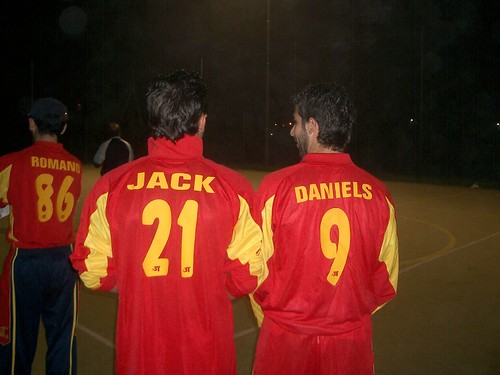There’s no avoiding human nature and the way we interpret and react to others, which in turn means it’s impossible to rule out a certain level of friction and the occasional conflict. What’s more, put a bunch of people together in a relatively close and highly charged environment and you have yourself something of a powder keg waiting to go off at any moment.
This is precisely why in games like netball it is of the utmost importance to be aware of the potential for conflict in order to make as much effort as possible to avoid friction between teammates. You cannot expect everyone to get on like best friends day in and day out and to do so will only infuriate those you’re trying to calm.
Of course, it’s a great thing if your whole team is wonderfully close and free from any animosity, but in most cases this just isn’t the reality. As such, it’s more a case of making sure things always stay safe within the boundaries of respect, tolerance and patience in order to keep the team as conflict-free as possible.
As far as preventing conflict goes, the industry’s very best netball coaches have the following tips to offer:
Promoting good team spirit is vital.

Give the Benefit of the Doubt
Coaches and team members alike must always play and live in the assumption that the rest of the team means well and is there for a positive purpose. The thing to remember is that when all’s said and done, you are all there for the same reason with the same goals and share the same passion – it’s not like you have to fight with each other to win. So, always give the benefit of the doubt and try to view the whole team in a positive light.
Remember that Winning Isn’t Everything
It goes without saying that everyone likes to come home from a netball game victorious, but as soon as you enter the frame of mind whereby winning is the only acceptable outcome, you’re heading for trouble. The reason being that when you approach a netball game in such a manner, you’re putting so much pressure on yourself and those around you that there’s a pretty good chance you or they will snap. If you manage to teach yourself and your teammates how to be gracious and happy in defeat, you’ll immediately rule out so many potential fireworks. Teams playing netball in London and other UK cities often find the enjoyment is in building lasting friendships more than the winning of games.
Trust Your Team
It’s also important to have faith in your teammates across the board and trust that when they say they’ll do something or feel a certain way, they’re being honest with you. If ever you find yourself questioning the honesty of your teammates, you’ve lost the sense of trust that’s of crucial importance in every game you play.
Of course, it’s all well and good to have these tips to try out when things are going along nicely, but what about in situations where conflict has already reared its ugly head? What’s the best way of smoothing things over and addressing trouble in the ranks?
Again, the country’s leading netball authorities all tend to agree on a few points, which include the following:
Bite Your Tongue
If and when faced with an outburst of aggression, abuse or accusations from anyone else in the team, the worst thing you can do is respond in a similar way. Aggression does not defeat aggression…ever…but what works much better is to bite your tongue, walk away and deal with it when emotions have subsided a little.
Remain Honest
If there is someone or something that is getting to you, it’s never a good idea to bottle it all up inside and pretend all is well – eventually it will burst out quite spectacularly. As mentioned above, great teams are built on trust and this means honesty at all times.
Listening to the whole team helps you get a bigger picture of what is happening.

Listen to the Whole Team
You’ll be unable to gain a full insight into what’s going on unless you look at it from the perspective of those around you as well. So, when there is any kind of conflict to speak of, make sure that the whole team’s thoughts and opinions are heard and taken into consideration – the answer of the problem might be right in front of you.
Bring in a Mediator
Last but not least, if it seems like there just is not a resolution in sight or at least no resolution that everyone can agree on, the time may have come to bring in outside help. Ensure it’s someone that has no specific relevance or connection as far as the team and the conflict are concerned, as they’ll be able to decide the outcome in a fair and unbiased manner.
Image credits: Aromano and grassrootsgroundswell
{ 0 comments… add one now }